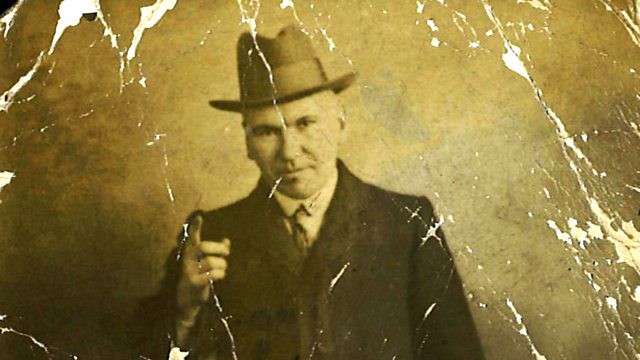Peterhead, Scotland: Imprisonment of the Scottish socialist John Mclean at Peterhead Prison
AB42 2ZX - How Scottish socialist John Mclean came to be imprisoned in Peterhead jail for his anti-war views
AB42 2ZX - Peterhead
John Mclean was born to a Highland family, but they were forced to move and they settled in Pollokshaws near Glasgow. After his fatherβs death, in order to support the family, Mcleanβs mother went back to her old profession as a weaver and took in lodgers.
Mclean became determined that to repay his motherβs sacrifices for the sake of his education by putting his intellect at the service of the working class. Mclean trained as a school teacher but his Socialist beliefs led to friction and in 1915 he was sacked from his post at Lorne Street Primary School.
He was a fierce opponent of the First World War. βHe argued that what was at stake was a struggle between Imperial nations for a share of the worldβs resources - and not worth shedding a drop of workersβ blood for,β says Dr Bill Knox, Senior History Lecturer at St Andrews University.
In 1918, against the backdrop of the Russian Revolution, Mclean was arrested and put on trial for sedition. Despite an eloquent, seventy five minute speech in which Mclean accused capitalism of βdripping from head to toe in bloodβ, he was found guilty and imprisoned for five years in Peterhead Prison.
βMclean didnβt see himself as a criminal, he was a political prisoner,β explains Bill Knox. βSo he refused to co-operate with the authorities. No sooner was he imprisoned than he embarked on a five month hunger strike, gravely weakening him mentally and physically.β
The Labour movement on Clydeside mobilised a campaign to have Mclean released, a campaign which gathered strength throughout 1918. The increasing confidence of the Labour movement, in tandem with the governmentβs fear of revolution, forced the government of the day to make concessions. One of the key concessions was the release of Mclean and he emerged from Peterhead Prison in December 1918.
βI think heβll always be seen as a heroic figure,β says Bill Knox. βHe stood for the best things within the socialist movement. He might have been a sort of dour character but he inspired the best in people, even though he could never convince them to go along with him politically.β
Image courtesy of Caledonian University.
Duration:
This clip is from
Featured in...
![]()
ΒιΆΉΤΌΕΔ Radio Scotland—World War One At ΒιΆΉΤΌΕΔ
Places in Scotland that tell a story of World War One
![]()
War at ΒιΆΉΤΌΕΔ
Refugees, internment, training and protest.
More clips from World War One At ΒιΆΉΤΌΕΔ
-
![]()
The loss of HMY Iolaire
Duration: 18:52
-
![]()
Scotland, Slamannan and the Argylls
Duration: 07:55
-
![]()
Scotland Museum of Edinburgh mourning dress
Duration: 06:17
-
![]()
Scotland Montrose 'GI Brides'
Duration: 06:41








